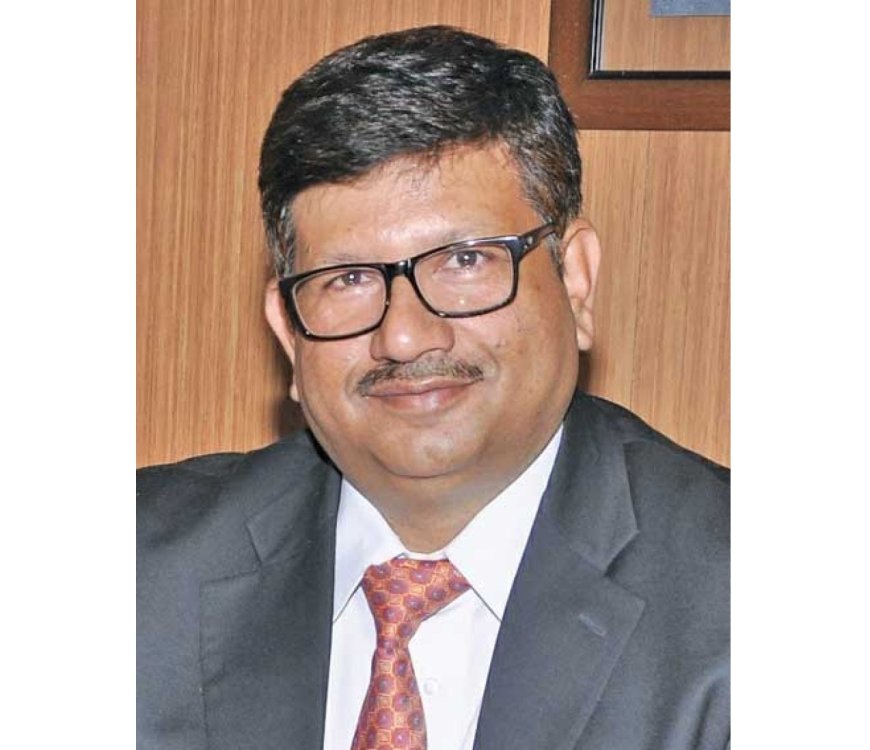As a leading construction equipment brand, CASE Construction Equipment has been producing cutting-edge products in India for over 32 years.
Satendra Tiwari, Head of Manufacturing, Pithampur, CASE Construction Equipment – India How do you see the government’s ‘Make in India’ programme and mission motivating industry to participate in it? How is this helping the construction equipment sector to improve its

How do you see the government’s ‘Make in India’ programme and mission motivating industry to participate in it?
How is this helping the construction equipment sector to improve its technological status and competitiveness in the global market?
The ‘Make in India’ programme by the Government of India has been a significant boost for the construction equipment sector in the country. It has encouraged companies to manufacture their products in India, leading to increased domestic production of construction machinery and equipment. This has not only created job opportunities but has also contributed to the growth of the sector.
This has also helped construction equipment OEMs to invest in manufacturing operations, manufacturers to upgrade their production processes and improve the quality of their products. This in turn has helped India-made equipment to become more competitive in the global market by producing high-quality equipment that meets international standards.
CASE CE is aligned with the ‘Make in India’ programme, as we have been manufacturing in India for over three decades. Furthermore, as part of our business strategy, we partner with local vendors to source most of the elements from within the country itself which has helped us to consistently to manufacture in India, for the world.
Foreseeing the government’s strong commitment and stable sentiments in the market, how do you evaluate your company’s growth in the coming years?
The Government’s sustained focus and investments towards infrastructure development has provided growth opportunities in the market, with the construction of new infrastructure as well as the rehabilitation and modernization of existing infrastructure. Additionally, the Budget 2023-24 has provided a boost for infrastructure development by increasing capital expenditure, with a total of Rs 10 lakh crore allocated for the FY24. This increase in capital investment outlay by 33 percent is expected to drive rail, road, defense, housing, water, and metro projects, leading to improvements in transportation and logistics, positively impacting economic growth and development. This will also result in job creation and a rise in demand for Excavators, Dozers, and Backhoes, further boosting their sales.
Furthermore, the Budget has proposed the creation of an Infrastructure Development Fund to enable large-scale infrastructure financing in India. The Fund is expected to have a positive impact on the construction equipment industry by enhancing financing availability for infrastructure projects, leading to an increased demand for construction equipment and machinery. These initiatives are expected to create a favorable environment for construction equipment companies like ours to grow and expand our operations in India in the coming years. As a company that is well-prepared to leverage growth opportunities in the construction equipment industry, we are confident that we can play a pivotal role in contributing to the government’s vision of making India a global construction equipment manufacturing hub.
What are your views on making India as a global construction equipment manufacturing hub?
We already envision India as a global manufacturing hub for construction equipment. As a leading construction equipment brand, CASE Construction Equipment has been producing cutting-edge products in India for over 32 years. Our state-of-the-art manufacturing plant at Pithampur is one of the company’s largest manufacturing hub, producing for India as well as over 75 countries in South East Asia, Middle East, Africa, and Latin America.
We recognize India as the best-cost source country, and our Vibratory Compactors and Loader Backhoes are over 90% localized, while other products are over 75% localized. We believe that with the Government’s focus on encouraging manufacturing and sourcing locally, India can become a preferred global manufacturing hub for construction equipment.
How is the scarcity of skilled operators affecting the prospects of the construction equipment market?
Skilled manpower is crucial for the construction equipment industry in India and globally. It is concerning that over 50% of workers in the industry lack basic education, in addition to construction skills. India is poised to become the third-largest construction market by 2025, emphasizing the need for a workforce that understands job requirements.
The lack of skilled workers has been a persistent issue, causing delays in project completion and hindering progress and profitability. With the increasing adoption of innovative technology, it is imperative for OEMs to upgrade the workforce’s skills to avoid project deferrals and achieve optimal productivity from the machines by operating them correctly.
CASE Construction addresses this issue by providing training and skill development initiatives such as a training center for engineers and a Skill Development Center named Hunar, which trains 240 professionals each year. These initiatives enhance the pool of skilled operators, improve productivity, ensure safety, reduce operating costs, and drive sustainable growth in the market.
CE manufacturers are now under pressure to manufacture machines which are not only cost effective, but also comply with the emission norms. What are your views on it?
The construction equipment (CE) manufacturers are facing increasing pressure to produce machines that are not only cost-effective but also comply with emission norms. This is driven by the need to address environmental concerns and meet regulatory requirements related to emissions in the construction industry. Complying with emission norms is not only a regulatory requirement but also a market demand, as environmentally-friendly construction practices are becoming more important to customers and stakeholders. CE manufacturers are recognizing the need to align their products with sustainability goals and market trends, and are investing in innovation to develop cost-effective solutions that also meet emission norms.
Hits: 10








